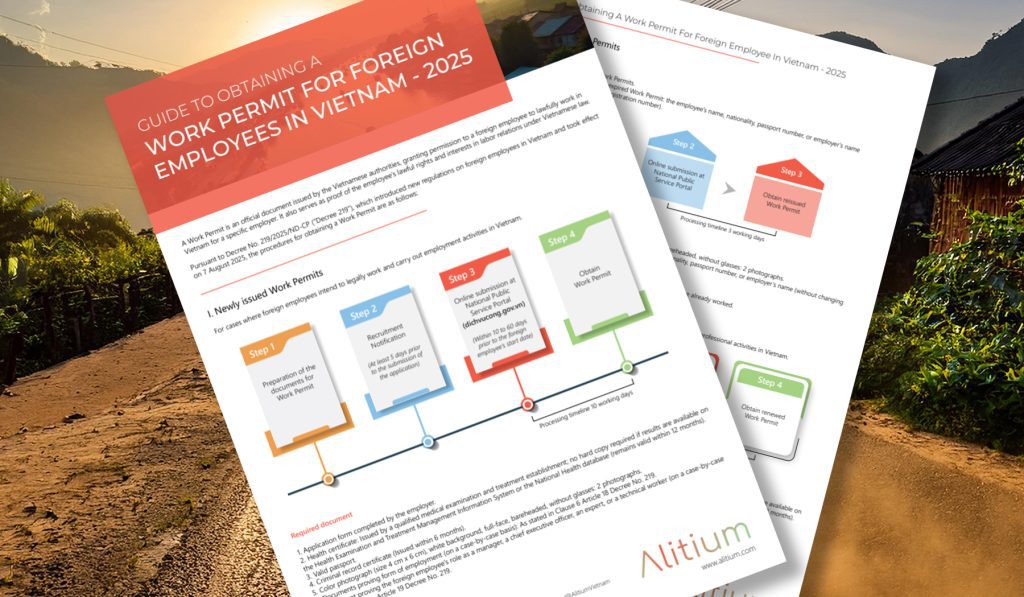Taxation Authority Utilising Real-Time Digital Data to Manage Taxation Risks in Vietnam
Vietnam’s Department of Taxation has recently introduced substantial reliance on the “K Coefficient” as part of its electronic invoice management system. This parameter is intended to both enhance tax compliance monitoring and prevent the issuance of fraudulent invoices.
What is the K Coefficient?
The K Coefficient serves as a threshold used to compare the value of goods sold (based on issued invoices) with the value of goods purchased and available inventory for a taxpayer, utilising electronic data from tax lodgements and electronic VAT invoice databases.
The basic formula is:
K = Total value of goods sold on invoices ÷ (Value of inventory + Value of goods purchased on invoices)
When the reported sales values on issued invoices significantly exceed a pre-determined coefficient compared to the sum of inventory and purchases, the Department of Taxation’s internal system automatically generates an alert. In such cases, businesses may be required to provide explanations and could face restrictions on issuing further invoices until the matter is sufficiently clarified.
For Example
Beginning inventory: VND 2 billion
Purchases during the period: VND 3 billion
Total goods available for sale: VND 5 billion
If the company issues invoices for sales of VND 8 billion, then: K = 8 ÷ 5 = 1.6
If the threshold for this taxpayer is set at K = 1.5, the company would be flagged for exceeding the limit and subject to review.
Impact on Businesses
Companies determined by the tax authority’s automated systems to have an “abnormal” K Coefficient during a measurement period should expect to receive requests from the tax authority to explain and provide supporting documents, and will be asked to amend previous lodgements and declarations if an error has been identified. Penalties and interest can also arise in these cases where amendments are necessary.
In some cases, businesses may face a temporary suspension of electronic invoice issuance, which can directly disrupt operations, delay revenue recognition, and create compliance risks.
The determination of a K Coefficient that the tax authorities use for a taxpayer is an internal algorithm managed by the Department of Taxation, and takes into account factors including the taxpayer’s history, data from other taxpayers in the sector that they operate in, along with comparable data obtained from a range of external and internal sources.
Why Does This Matter?
This mechanism of using the K Coefficient by the Department of Taxation seeks to:
• Prevent the trading of invoices without actual goods transactions,
• Better ensure taxation liabilities are reflected in the correct periods, and tax is paid in those periods,
• Reduce VAT fraud through inflated input and output reporting,
• Enhance the transparency and accountability of tax reporting.
While the measure primarily targets fraudulent practices, legitimate businesses can easily be flagged due to timing differences, production cycles, or specific contractual terms.
Recommendations for Businesses
In order to mitigate risks and ensure smooth compliance, taxpayers are encouraged to:
1. Strengthen inventory management by maintaining accurate, real-time data on purchases, stock, and sales,
2. Ensure consistency between accounting and invoicing so that invoices reflect actual goods movement,
3. Prepare supporting documentation to explain any cases where the K Coefficient threshold is exceeded, justifying the commercial elements of the differing data,
4. Engage professional tax advisors to review and monitor K ratios and supporting documentation regularly.
5. Leverage digital tools such as formal ERP or integrated accounting systems to consolidate invoicing, procurement and inventory management.
The reliance on the K Coefficient marks an important step in the tax authority’s effort to strengthen compliance and reduce fraudulent practices in Vietnam. For businesses, this highlights the need for robust accounting, tax compliance and inventory management practices. By taking a proactive approach, companies can minimize risks, ensure compliance, and maintain constructive relationships with tax authorities when enquiries arise.
For any further questions you may have, please reach out to us at vietnam@alitium.com
********
This article is intended to provide an overview of regulations. While it aims to present useful insights, it is important to note that the content shared here should not be considered as formal legal or financial advice. For specific guidance on tax obligations or legal matters related to your business, we strongly recommend consulting with a qualified professional, such as a tax advisor or legal expert or directly reach out to us.








